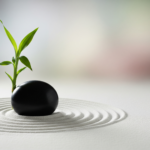During the pandemic lockdown I felt lonely and cut off from the usual fun and games with friends and family. I spent far too much time inside my own head, reading and thinking, but starving for the simple nourishment of play. When restrictions eased, all I wanted was to wag my tail at other people and invite them to a game of catch. Esoteric intellectual play can be rewarding, but getting outside and throwing objects is a lot more fun and a welcome break from endless hours in front of screens. Throwing and catching invite us into a fascinating state of easy attention. Unlike the effortful, detail-oriented focus required by most work, this kind of attention feels natural and restorative. Every toss is slightly different in speed or trajectory, asking the catcher to judge velocity and angle and to make micro-adjustments of posture and hands. That constant novelty refreshes a tired brain while delighting the body.
My friend Brad Johnston introduced me to the idea of “mammal play.” He uses pairs of lightweight frisbee discs that can be pushed or tossed, one or two at a time, sometimes alternating and sometimes both at once. Distances, speeds, and throwing hands change unpredictably. The receiver must stay present, trusting the body’s stored wisdom to react. The game is elegant one moment and hilariously impossible the next. It’s a playful lesson in responding to the unknown, much like the experience of a night on call for radiologists. Two emergency cases can drop on the list at once, and you can only read one study at a time. You have to make quick decisions. Which disc do you chase first? Which one do you let go by you and retrieve later?
When playing at high speeds, exchanges become too fast for your logical brain to process. You need to trust your reflexes. Shifting gears from paced, logical thought to rapid reflexive responses gives you opportunities to be astonished by your body. Whoa, did you see me do that? There is a thrill in doing something you didn’t know you could and can boost your faith in your capacities well into adult life. Learning to play in this way, at the edge of your physical abilities, might even expand your consciousness.
Ostensibly very simple, games of toss and catch allow us to engage in complex systems thinking. They provide a chance to alter rules and observe what changes result, both in the physical experience of the game and its relational qualities. You might play eight feet apart, making it a subtle game of awareness and attention. You might alternate using your left and your right hand, making it more like juggling. You might take it outside where the wind, changing light, and obstacles in the environment introduce elements of chance.
A simple game reveals a lot about people: Who plays by existing rules and who invents new rules? Who laughs at their flub-ups and who pouts?
As Friedrich Schiller wrote in 1795, “Man only plays when he is in the full sense of the word a human being, and he is only fully a human being when he plays.”
Schiller used play to describe a state where our “sense drive” (physical needs) and “form drive” (rational order) are harmonized. In play, he argued, we experience freedom (neither ruled solely by duty nor by appetite) and therefore realize our full humanity.
Humans are not genetically “programmed” to toss balls, yet our evolved love of trajectory, timing, and cooperative play makes throwing and catching an almost inevitable pleasure wherever there are suitable objects and willing partners. Packing a ball or disc alongside your lunch may do more than help you burn a few calories. It can shift your brain from focused to fascination attention, deliver dopamine bursts when you surprise yourself by catching a tricky throw, lower stress, and strengthen social bonds.
Unlike yoga or solitary mindfulness, a friendly game of toss involves eye contact and cooperation, powerful ingredients for connection. A simple game of catch packs a real punch for wellness. It refreshes the mind, lowers heart rate, improves mood, and, best of all, reminds us that play is not a luxury but a basic human need. And, best of all, it’s fun.
Sarah Averill is a radiologist.




















![AI censorship threatens the lifeline of caregiver support [PODCAST]](https://kevinmd.com/wp-content/uploads/Design-2-190x100.jpg)
